The stories that make up history can be told and interpreted in a multitude of ways. But if you really want history to come alive as those who lived through it would have experienced it, you should pick up an account written by a journalist. Written by the people who covered history as it was happening, these books by journalists put the reader right at the heart of the events. From insights into American presidents to portraits of recent events that have shaped the world we live in today, here are 10 books by journalists that illuminate history.
Related: Explore the 20th Century Through Martin Gilbert's Best Books
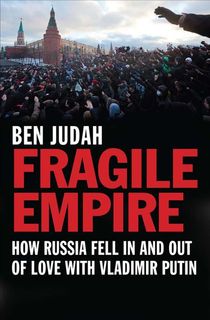
Fragile Empire
In the early 2010s, reporter Ben Judah set out to understand what Vladimir Putin’s rise to power meant for the future of Russia. He traveled through Russia and several former Soviet countries, interviewing Putin’s friends, enemies, and collaborators as well as regular Russian people to figure out what allowed him to ascend to the presidency. Much of Judah’s reporting is set against the backdrop of a mass protest movement against Putin’s regime in late 2011. At the time, it seemed as though Putin’s carefully crafted image of a thriving Russia under his command was falling apart.
Related: Examine Russia's Long History with Poison in The KGB’s Poison Factory
Although the crisis of 2011 did not bring down Putin’s government, Fragile Empire still rings true. Judah’s description of Putin’s rise to power offers important insight into how he has continued to stay in power and implement his specific political philosophy.

Alone atop the Hill
Born to sharecroppers in rural Kentucky, Alice Dunnigan moved to Washington, D.C. in 1942 to begin a career as a reporter. Along the way, she broke down barriers for African-Americans in journalism. By the end of the decade, she had become the first Black woman reporter credentialed to sit in galleries in both the Senate and House of Representatives, the first to serve as a White House press correspondent, and had traveled across the country with President Truman. In the years leading up to and during the Civil Rights Movement, Dunnigan was unafraid to press her subjects—including President Eisenhower himself—on issues of race. In Alone atop the Hill, Dunnigan recounts her remarkable and groundbreaking life.
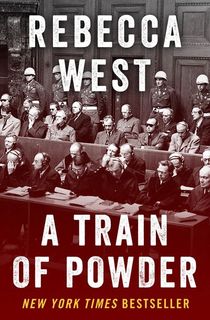
A Train of Powder
In the aftermath of World War II, New Yorker reporter Rebecca West was sent to Germany to cover the Nuremberg trials. A Train of Powder is an account of West’s own experiences in Nuremberg and of the trials themselves. By the 1940s, West was already well known for her ability to dive deep to uncover people’s true drives and motivations, and here she is able to provide insight into the judges, lawyers, and even the Nazi war criminals who took the stand. The result is a complete portrait of the world as it was immediately after WWII and of the choices that defined the world we live in today.
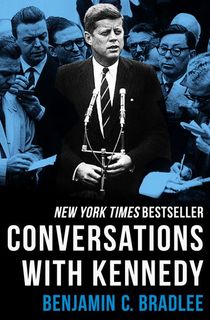
Conversations with Kennedy
When Senator John F. Kennedy launched his bid for the presidency in 1958, reporter Benjamin Bradlee was sent to cover his campaign. It was the beginning of a close friendship between the two men that would last until Kennedy’s death in 1963. Both were Harvard graduates and veterans who had similar values and opinions on America’s role in a rapidly changing world. In Conversations with Kennedy, Bradlee reveals the JFK he knew, painting an intimate portrait of the man behind the modern legend.
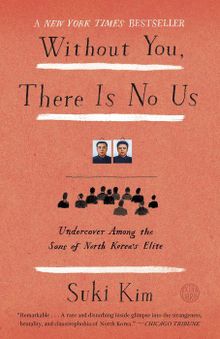
Without You, There Is No Us
In 2011, Korean-American journalist Suki Kim went undercover in North Korea as an English teacher. That year, all universities in the country had been shut down, except for the prestigious Pyongyang University of Science and Technology, where the sons of North Korea’s elite went to complete their education. Without You, There Is No Us is an account of her six months at PUST as she struggled to understand how the seemingly normal young men she taught could also have such unquestioning loyalty to the oppressive North Korean regime.
Gradually, as Suki and her students grow closer, she is able to catch a glimpse of youthful curiosity within them, and she begins to share small hints of the outside world, from the Internet to the concept of democracy. But when Kim Jong-il dies, everything changes.
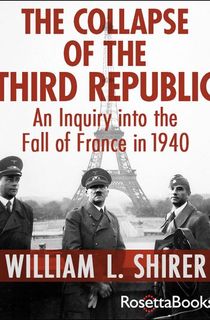
The Collapse of the Third Republic
In 1940, journalist William L. Shirer was in France working as an international correspondent and radio commentator. He watched as France took only six weeks to fall to the invading Nazi forces. In The Collapse of the Third Republic, Shirer recounts the events that led up to the fall of France, drawing from his own experience as well as interviews with military leaders, politicians, and ordinary people who watched the nation crumble. The book is a key account of life under Nazi occupation and a stark warning of just how quickly a society can fall apart.
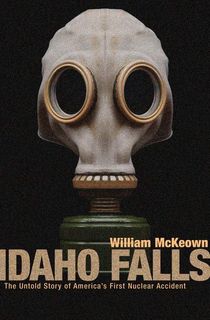
Idaho Falls
On January 3, 1961, an experimental military nuclear reactor in the Lost River Desert in Idaho exploded and killed three crew members. It was the first deadly nuclear meltdown in history. Questions swirled for decades about what really happened that night. Was it the result of faulty design? Sabotage? And why was the truth hidden for so long? Through his interviews with those who knew the victims as well as experts on nuclear energy, journalist William McKeown seeks to answer these questions and more in Idaho Falls.

Whiskey Tango Foxtrot
For several years in the early 2000s, Chicago Tribune reporter Kim Barker covered the War on Terror, splitting her time between Afghanistan and Pakistan. In Whiskey Tango Foxtrot, Barker recounts her time spent covering the “forgotten war” in the region when post-9/11 America shifted its gaze toward Iraq. As Barker grows into a more seasoned reporter, the world falls apart around her. What results is a memoir that is equal parts heartbreaking and refreshingly hilarious.

All the President’s Men
Arguably the most famous work of journalism in American history, All the President’s Men is the story of the Watergate scandal, the men who reported it, and the downfall of the Nixon administration. In 1972, five burglars broke into the headquarters of the Democratic National Committee at the Watergate Hotel in Washington, D.C. What followed was a series of cover-ups by the president and his administration that could have completely escaped public notice were it not for the courageous reporting of Washington Post journalists Carl Bernstein and Bob Woodward. The basis for the 1976 film of the same name, there is a reason All the President’s Men remains such a relevant work in a period of increasing political instability.
Related: Blind Ambition: 9 Books About the Watergate Scandal

The Buried
After several years spent covering China for The New Yorker, reporter Peter Hessler decided to move to Cairo, Egypt in 2011. He hoped to spend his time learning Arabic and visiting fascinating archeological digs, but instead he found himself in the middle of the Arab Spring. As the Egyptian government crumbled, Hessler got to know his new home, striking up friendships with translators, Arabic instructors, and even the local garbageman. The Buried is equal parts an account of the Arab Spring in Egypt and a portrait of a country attempting to find its identity in the wake of revolution.
This post is sponsored by Open Road Media. Thank you for supporting our partners, who make it possible for The Archive to continue publishing the history stories you love.




